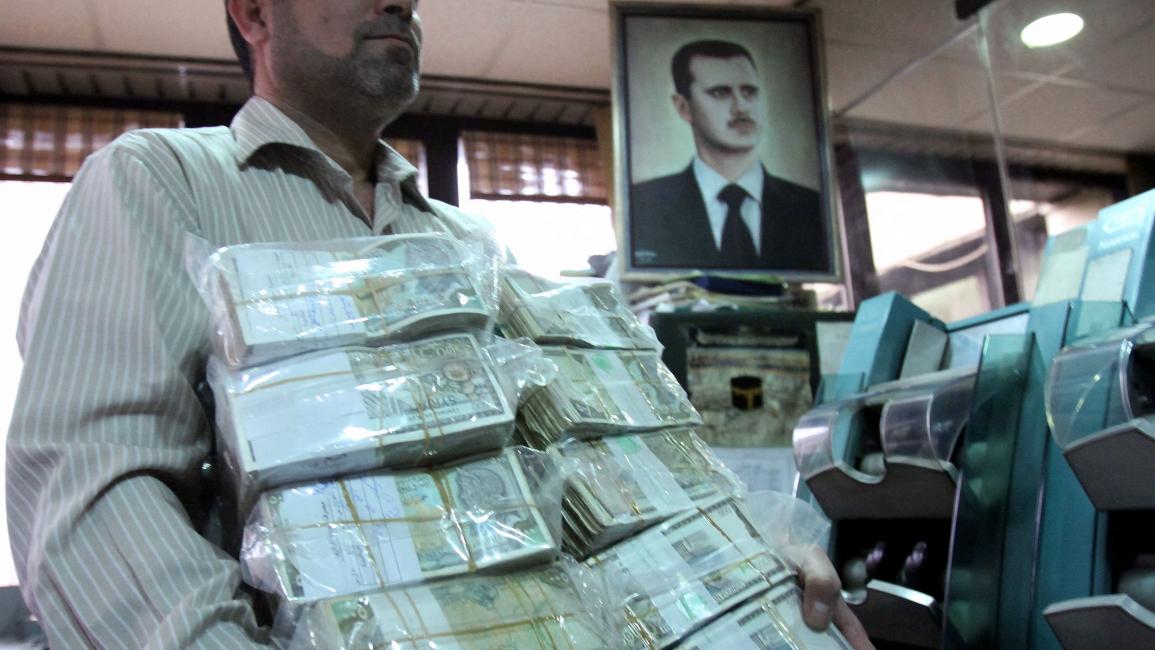In Syria, many commercial transactions are now conducted by weighing money rather than counting it. This shift is a direct consequence of the lira’s drastic devaluation, which has forced traders to handle large quantities of banknotes for even routine purchases. The depreciation of the currency has rendered traditional counting methods impractical, especially given the widespread obsolescence and deterioration of many banknotes.
Imad Ghanma, a merchant from Damascus, explained to Al-Araby Al-Jadeed that weighing money has become the norm, even for small sales, in regime-controlled areas. He noted that counting large sums of money is not only time-consuming but also prone to errors. For instance, the price of a washing machine can be around 6 million liras, and a refrigerator about 11 million liras. Manually counting such amounts increases the likelihood of mistakes, often necessitating recounts.
150% inflation
Ghanma mentioned that while money-counting machines are available in most wholesale and appliance stores, they struggle with older currency. As a result, the weight of each bundle of money has been standardized—bundles of five thousand and two thousand liras are now weighed using precise scales, a practice that merchants and customers have grown accustomed to. If any banknotes have stickers, they are excluded from the weighing process, as they can distort the weight. The standard weight for a bundle of 500,000 liras in 5,000-lira notes is 98 grams, while a bundle of 200,000 liras in 2,000-lira notes weighs 100 grams.
Early Recovery Needs Financial Support, Doesn’t Exist Yet: World Health Representative
The shift to weighing money is also driven by the sheer volume of currency needed for transactions. For example, the exchange rate of the lira has plummeted to about 15,000 liras to the dollar in Damascus markets, further exacerbating the problem. In this environment, the demand for gold has also surged, with 21-carat gold reaching about 1.03 million liras per gram.
Syrian economic expert Mohammad Haj Bakri is unsurprised by the trend toward weighing money. He explains that rampant inflation has turned the Syrian currency into “almost worthless paper.” The cost of items like a 2011 South Korean Kia car or a house in the Damascus suburb of Mashrou’ Dummar can reach hundreds of millions of liras, making counting impractical, especially with old or damaged notes in circulation.
Haj Bakri pointed out that the currency’s collapse peaked early last year when the dollar jumped from about 7,000 to around 13,000 liras. Since then, the rate has fluctuated around 15,000 liras, with annual inflation exceeding 150% and the purchasing power index plummeting to a mere 4.21%. The quality of life in Syria, according to the Numbeo database, has effectively dropped to zero.
Addressing inflation seems nearly impossible within Syria’s current economic and political landscape. Haj Bakri argues that improving the lira’s exchange rate requires industrial growth, increased exports, and tourism, along with restoring public confidence in the currency and establishing a stable political environment. He also mentions that while removing zeros from the lira might reduce the burden of carrying large quantities of currency, it would do little to enhance the lira’s purchasing power unless accompanied by broader economic reforms.
The stark reality in Syria today is that buying a house or land often requires a carload of money, and large baskets—reminiscent of garbage bins—are now used in shops and gas stations to store bundles of Syrian currency.
This article was translated and edited by The Syrian Observer. The Syrian Observer has not verified the content of this story. Responsibility for the information and views set out in this article lies entirely with the author.


